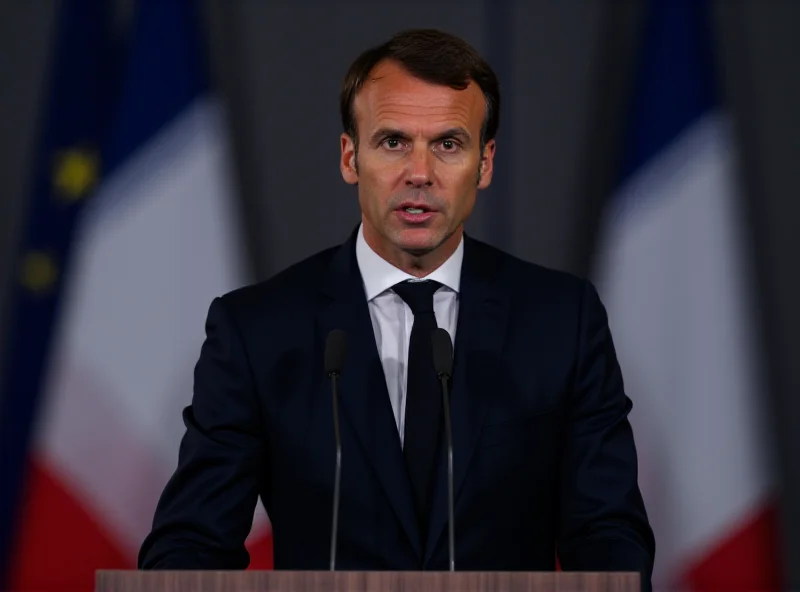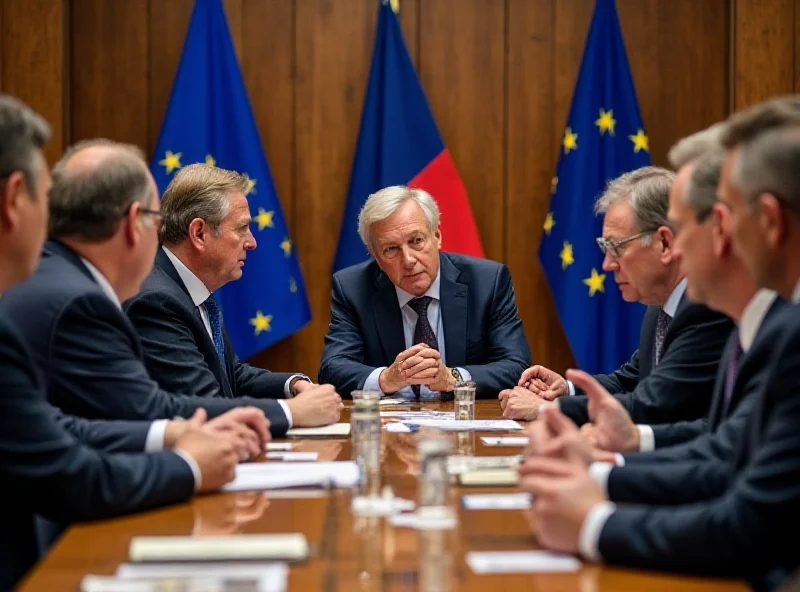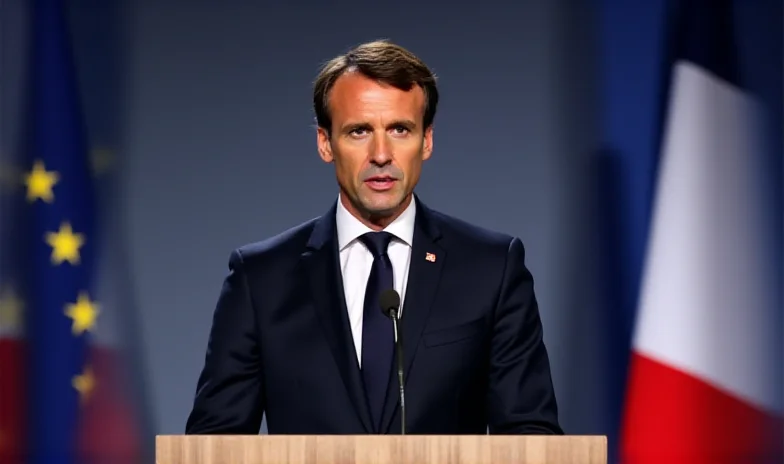Europe faces a multifaceted challenge as leaders grapple with strengthening their collective defense, exploring new approaches to nuclear deterrence, and actively seeking a path to peace in Ukraine. Several key developments highlight the complexities and potential shifts in European security policy.
Macron's Nuclear Deterrence Proposal
French President Emmanuel Macron has signaled a willingness to discuss the concept of nuclear deterrence for Europe, a move that could significantly alter the continent's security landscape. This proposal comes as European leaders prepare to meet in London to discuss a peace plan for Ukraine, indicating a broader effort to address the ongoing conflict and its implications for European security. The details of Macron's proposal remain to be seen, but the willingness to engage in such discussions suggests a growing recognition of the need for a stronger, more independent European defense posture.

Zelensky's Diplomatic Dance
Meanwhile, Ukrainian President Volodymyr Zelensky was recently in London, where he met with various political figures. During his visit, Zelensky notably avoided answering questions about Donald Trump while greeting UK Labour leader Keir Starmer outside No. 10 Downing Street. This diplomatic maneuvering underscores the delicate position Ukraine finds itself in, navigating complex international relationships amid the ongoing conflict with Russia.
The State of European Defense
Beyond the immediate crisis in Ukraine, Europe is also confronting long-standing challenges in its own defense capabilities. Despite being home to some of the world's wealthiest nations, the equipment of European armies often lags behind, a consequence of factors such as low defense budgets, fragmented arms production, and the pursuit of individual national interests. However, there's a growing consensus among European politicians that joint arms purchases and collaborative development of military technology could offer a path toward a more robust and efficient European defense system. The success of these initiatives, however, remains to be seen.

A recent commentary highlights the urgency of the situation, arguing that Europe must act decisively to address vulnerabilities in its approach to Russia. The commentary suggests that the previous US administration, under Donald Trump, created a "horror show" in the Oval Office, with actions that undermined support for Ukraine and emboldened Russia. This perceived leadership vacuum, according to the commentary, necessitates immediate and decisive action from Europe to strengthen its defenses and project a united front.

“The huge gap in the front against Putin must be plugged by Europe, and that immediately,” stated one commentator, emphasizing the critical need for European unity and resolve. The coming months will be crucial in determining whether Europe can effectively address these challenges and forge a stronger, more secure future.
Looking Ahead
Ultimately, Europe's ability to navigate these intertwined challenges – strengthening its defense capabilities, exploring new approaches to deterrence, and actively pursuing peace – will depend on its ability to overcome internal divisions and forge a common strategic vision. The stakes are high, and the future of European security hangs in the balance.
